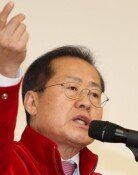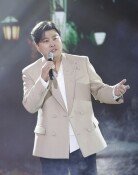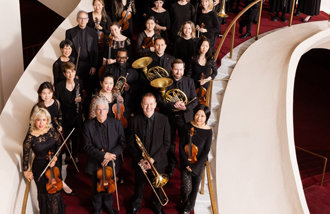Progressive Figures Dominate History Correction Councils
Progressive Figures Dominate History Correction Councils
Posted January. 31, 2007 07:09,
Some half of the committee members and employees of nine state-run councils of the Special Committees on Fact Finding on Past Incidents (SCFFPI) have either been involved in progressive organizations or published progressive papers, according to a recent analysis of the Citizens United for Better Society (CUBS).
The SCFFPI Monitoring Group under the CUBS announced on Tuesday that, according to their analysis on the 178 committee members of the nine government-run councils and the 149 workers, 88 committee members (49.4 percent) and 82 workers (55 percent) have been classified as progressives. The data was provided by the office of Rep. Lee Sang-bae of the Grand National Party.
Out of the 15 state-run councils of the SCFFPI, six councils, which have not caused ideological disputes including the Compensation Council of Samcheong Education Brigade Victims, were exempted from the analysis.
The CUBS said that those who call themselves progressives, worked for progressive organizations, or conducted progressive research have been classified as progressives in the analysis. It is a first comprehensive examination on the entire personal histories of the committee members and workers of the SCFFPI.
In particular, 24 out of 46 committee members of the Truth and Reconciliation Commission (TRC), and 54 out of its 84 employees were found to be progressives. TRC has recently fueled controversy with its decision to disclose the names of the judges who wrongfully sentenced guilty verdicts on protesters under the dictatorial rule of the Park Jung-hee government.
In regard to the Democratic Uprising Compensation Council, 23 out of 43 committee members and eight employees were classified as progressives.
Meanwhile, only three out of 10 committee members of the Truth Finding Council on the Wrongful Doings of Police and none of its seven employees were classified as progressives.
In regard to involvement in progressive organizations, 50 committee members (28.1 percent) and 51(34.2 percent) of the Council for the Review of the Governments Past History were found to have been engaged.
Quite a few of them were involved in independent progressive research groups, such as the Institution for Korean Historical Studies, the Institute for Research in Collaborationist Activities, and the Institute of Historical Studies. Nine out of the examined committee members and 13 employees were from these institutes. For instance, Seo Jung-seok, the director of the Korean Historical Studies, Lee Yi-hwa of the former director of the Korean Historical Studies, and Lim Hyun-young, the director of the Institute for Research in Collaborationist Activities, are all committee members of the TRC.
Four former members of the Korean Teachers and Educational Workers Union are also involved in the TRC as committee members.
In regard to the occupation of committee members, 54.7 percent of the SCFFPI have been found to be professors or scholars, 17.8 percent lawmakers, 11.9 percent NGO staff. Meanwhile, 36.9 percent of the employees of the SCFFPI have been found to be scholars or researchers and 27.5 percent NGO employees and 8.7 percent media or publishing industry related personnel.
In order for the committee members and staff of the SCFFPI to properly review the past wrongdoings, ideological fairness is absolutely necessary, said Kim Gwang-dong, a senior official of a monitoring group of the CUBS.
ditto@donga.com







